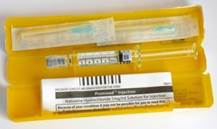
An overdose happens when someone takes too much of a drug (or a mix of drugs) for their body to handle. This can happen with any drug, including prescription medications. It’s important to know the signs of an overdose, which can vary depending on the drug. Always follow your prescribed dosage, avoid mixing drugs, and seek help if you feel out of control.
The International Overdose Awareness website explains different types of overdoses, like opiate, alcohol, and stimulant overdoses. Knowing these can help you spot the signs and act quickly.
If someone is unconscious, check their airway and place them in the recovery position. Signs of unconsciousness include:

Naloxone is a drug that can temporarily reverse an opiate overdose. It’s becoming more available in Cornwall through drug treatment services, family members, and accommodation services. South West Ambulance Service vehicles carry Naloxone, and it is also available in pre-charged syringes called Prenoxad.
Visit our Naloxone page to find your nearest supply and watch videos on how to use Naloxone and assemble the Prenoxad kit.
Watch this short film where drug users interview ambulance staff to clear up fears of arrest or prosecution when reporting a drug overdose. This helps reduce drug-related deaths by encouraging timely calls for help.
Drug Related Death report 2024
Drug Related Death report 2023
Drug Related Death report 2022
Drug Related Death report 2021
Drug Related Death report 2020
Drug Related Death report 2019
Drug Related Death report 2018
Drug Related Death report 2017
Drug Related Death report 2016
Drug Related Death report 2015
Drug Related Death report 2014-15